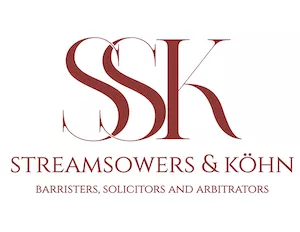- within Employment and HR, Corporate/Commercial Law and Transport topic(s)
- with Finance and Tax Executives
- in European Union
- with readers working within the Advertising & Public Relations and Law Firm industries
Introduction
Nigeria's Finance Bill of 2022 (the Bill) has made changes to several fiscal and administrative laws, including the Public Procurement Act, the Capital Gains Tax Act, the Companies Income Tax Act, the Customs, Excise Tariff, etc. (Consolidation) Act, Corrupt Practices and Other Related Offenses Act, the Personal Income Tax Act, the Petroleum Profits Tax Act (PPTA) and the Stamp Duties Act.
One of the major aims of the Bill is to improve the Nigerian fiscal regime. This article focuses on the changes made to the PPTA under the Bill, some of which seek to align the PPTA with the provisions of the Petroleum Industry Act, 2021 (PIA).
Comparative Analysis of the PPTA, the PIA and the Bill
The Bill amends section 2 of the PPTA by redefining "commission" to mean the Nigerian Upstream Petroleum Regulatory Commission, this amendment is to harmonize the PPTA with the PIA.
It is pertinent to note that the petroleum industry currently operates two legal regimes. Holders of the Oil Mining Lease (OML) and Oil Prospecting License (OPL) are subject to the PPTA and are liable to pay tax at the rate of 85% or 65.75% of the chargeable profits1.
Whereas under the PIA, the holders of the new Petroleum Prospecting License ("PPL") and Petroleum Mining Lease ("PML") are liable to pay hydrocarbon tax2 at the rate of:
- 30% of profits from crude oil for a PML3 in onshore and shallow water areas; and
- 15% of profits from crude oil for a PPL4 in onshore and shallow water areas.
The PIA allows the conversion from OPL to PPL and from OML to PML5. Upon conversion, the holder of the PPL or PML will benefit from the new fiscal provisions and tax rate6 under the PIA.
The Bill7 proposes to amend the PPTA so that where the Commission has approved the decommissioning and abandonment of a field, the surplus or remaining balance of any fund, scheme, or arrangement (the "Decommissioning And Abandonment Fund" or the "Fund") after the decommissioning and abandonment, is subject to taxation under the PPTA. This amendment is in order to bring the PPTA in line with the provisions of section 233(12) of the PIA, which provides that any excess monies in the Fund will be given back to the licensee or lessee8. However, this amendment does not fully align with the PIA because the PIA does not state that the excess monies in the Fund will be taxed under the PPTA but rather hydrocarbon tax will apply.
The Bill9 also seeks to make minor alterations on the information that will be provided for each accounting period of the company for the purpose of calculating the Petroleum Profits Tax which now include:
- a statement of accounts of its profits or losses;
- computation of its actual adjusted profit or loss and actual assessable profits of that period;
- the residues at the end of that period in respect of its assets;
- all qualifying petroleum expenditure incurred by it in that period;
- the values of any of its assets disposed of in that period.
- the allowances due to it under the second schedule of the Bill.
These alterations are in line with section 277 of the PIA10. The PIA in section 277(1)(d) and (g) mandates a holder to provide a schedule showing total production allowance from every field of its upstream operations relating to crude oil11 and the computation of chargeable tax for that period12, but these provisions are not reflected in the proposed Bill.
The Bill in section 3013 requires every newly incorporated company that has not started bulk sales or disposal of chargeable oil, to submit its audited accounts and returns within 18 months from its date of incorporation. The Bill further states that in the case of any other company, the audited accounts and returns must be submitted to the Service within 5 months of the accounting period ending on December 31 of the following year, provided that where there is an interval between 31st December of the preceding year and the date on which the company commences the bulk sale or disposal of chargeable oil or condensate, the interval will be deemed to form part of the preceding period. This is in line with the provisions of section 270 of the PIA.14
In addition, section 3015 of the Bill also prescribes sanctions for companies that violate section 30 (2) or (3) of the PPTA by failing to provide the Service with their audited financial statements and returns within the stipulated period. The Bill penalizes the violation with a fine of N10,000,000 for the first day the failure occurs, and N2,000,000 fine for each succeeding day the failure persists, or any other amount that the Minister of Finance may specify in an order that is published in the Gazette.
The Bill purports to amend the penalty for offences committed under the PPTA. It provides that where no administrative penalty is prescribed, the person found to be in default will be liable to a fine of N10,000,000. This is a major increase from the former fee of N10,000 under the PPTA. The Bill also provides for an increase from N2,000 to N2,000,000 for each day the default continues16. In addition, the Bill proposes that notwithstanding the provisions in Section 51(1) of the PPTA where a person is found guilty where there is no specified penalty, the defaulter will upon conviction pay a fine of N20,000,000 or any other amount the Minister of Finance may prescribe by order or a 6-month sentence in prison, or both. The Bill also provides that where a person:
- disregards the requirements of a notice served on him under the Act without good reason.
- disregards the provisions of section 30 of the Act. (3) disregards a summons served on him under the Act.
- disregards a question lawfully put to him after he attends a summon, fails to answer any question lawfully put to him or
- disregards the requirements of a return required to be submitted under sections 30 or 33 of the PPTA. that person is liable to the administrative penalty as earlier stated in section 30 of the PPTA as proposed 3 by the Bill17. The Bill also provides that any offense committed under section 30s subsections (1) and (3) of the PPTA shall be considered to have occurred in Nigeria18.
The Bill intends to amend the penalties for making false statement of accounts, statements and returns by prescribing an increased fine of N15,000,000 and 1% of any tax undercharge or misappropriations made by the defaulter19, 6 months' imprisonment or both20 as opposed to N1,000 and double the amount of tax specified by the PPTA for the accounting period. The Bill also seeks to delete section 55 of the PPTA which states the penalties for offences by authorized and unauthorized persons. It prescribes these modifications because Section 44 of the Federal Inland Revenue Service (Establishment) Act 2007 already has sufficient and superseding provisions that are more pertinent in light of redundant offenses and penalties21.
It is worthy of note that the Companies Income Tax Act 2020 (CITA) as proposed by the Bill provides for alterations for a "Gas Flaring Company"22 that vents or flares any related or non-associated natural gas in any year of assessment. The CITA has provided that Gas Flaring Companies will now pay a higher corporation tax rate of 50% in accordance with Nigeria's pledges to lowering greenhouse gas emissions, according to PIA. Given that it is higher than the normal nominal income tax rate of 30% in CITA, it is predicted that this rate will aid in preventing gas flaring23.
Footnotes
1 Section 21 (1) & (2) of the PPTA.
2 Hydrocarbon tax applies to crude oil, field condensates and natural gas liquids derived from associated gas and produced in the field upstream of measurement points.
3 Section 267 (a) of the Petroleum Industry act 2021.
4 Section 267 (b) of the Petroleum Industry act 2021.
5 Section 92 (1) od the PIA 2021.
6 Section 92 (20) of the PIA 2021....
7 Section 10 of the PPTA was amended by inserting paragraph (n).
8 Section 233 (12) of the PIA 2021.
9 Section 30 of the PPTA was amended.
10 PIA 2021.
11 Section 277 (1) (d) of the PIA 2021.
12 Section 277 (1) (g) of the PIA 2021.
13 Section 30 (2) of the PPTA.
14 PIA 2021.
15 Section 30 of the PPTA was amended to insert subsection 4.
16 Section 51 (1) of the PPTA was amended.
17 Section 51 of the PPTAs amended to add subsection 4.
18 Section 51 of the PPTA was amended to insert subsection 3 & 4.
19 Section 52 of the PPTA was substituted for a new Section 52.
20 Section 53 of the PPTAs amended.
21 Section 55 of the PPTA was deleted.
22 Section 105 of the CITA was amended by inserting a new definition for "Gas-flaring Company".
23 Section 26 of the CITA was amended by inserting a new subsection (4).
The content of this article is intended to provide a general guide to the subject matter. Specialist advice should be sought about your specific circumstances.


